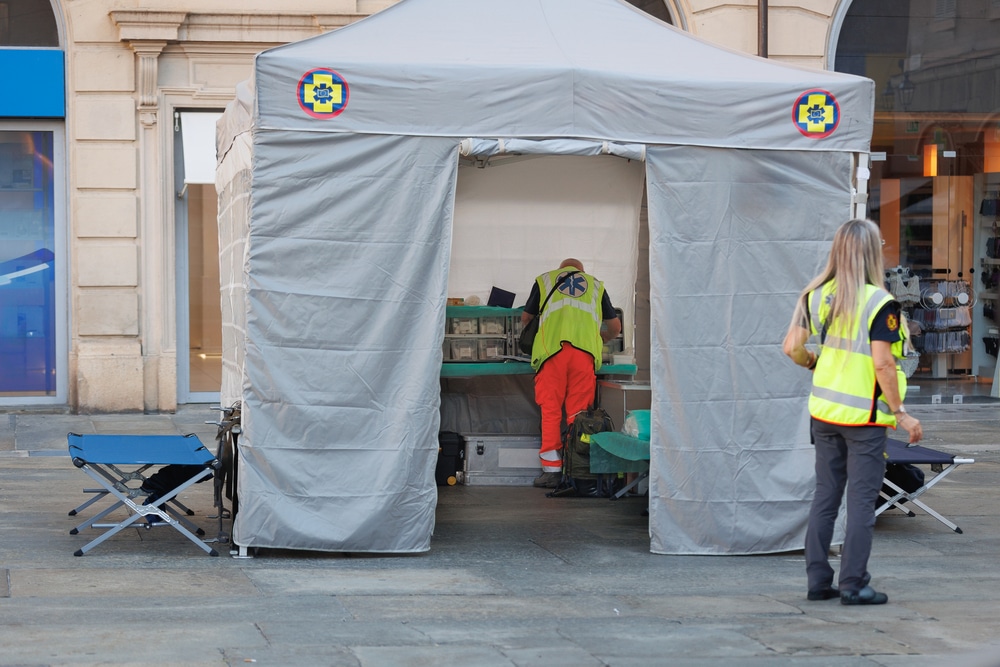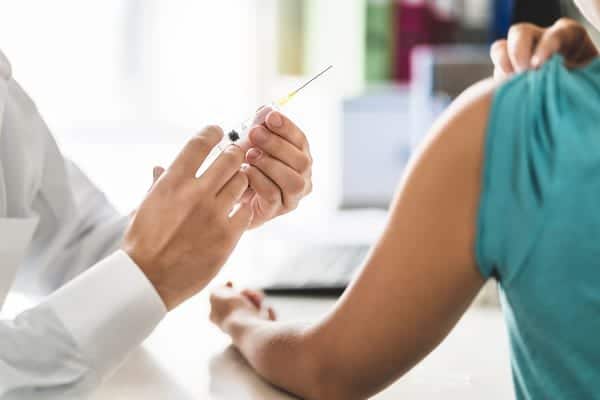Skip To Section
Spreading bloodborne pathogens like hepatitis B, hepatitis C, or HIV can all lead to chronic illness and eventually cause death. However, many people who abuse injection drugs like heroin may contract these diseases due to needle reuse and unclean conditions. This is why safe injection sites have gained public support in recent years.
To help people who inject drugs, supervised consumption services are being studied and implemented all over the country. These services include needle exchanges, used needle disposals, and safe injection sites.

Safe Injection and Sterile Syringe Access in New Jersey
In 2010, the New Jersey Department of Health (NJDOH) was selected as a “state partner” in the Centers for Disease Control and Prevention (CDC) Safe Injection Practices Coalition (SIPC).
Initiatives in this program include educating health service providers across the state and creating a New Jersey Advisory Board that guides the initiative across the northeastern state.
Since its inception, the injection safety team has provided information, materials, and presentations to over 10,000 health professionals and students in 130 locations across New Jersey.
One of the more important programs created by the team is the Safe Injection Ambassador Program. The program began in 2011, and it was first implemented in 2012, training licensed health care professionals like nurses and infection preventionists in injection practices and substance abuse information. By 2016, the program had trained over 75 ambassadors.
Syringe reuse, drug diversion and tampering, and misuse of medication vials have resulted in over 150,000 people who sought testing for bloodborne pathogens and caused dozens of outbreaks. While some of these are mistakes in a medical setting, most of them (including in New Jersey) involve people who use injection drugs like heroin, fentanyl, and other substances.
New Jersey Debates Safe Injection Sites
New Jersey’s lawmakers are considering a proposal in 2019 that would allow DOH to open four safe injection sites. These sites would allow people who use injection drugs to consume substances in a clean, safe setting without fear of being arrested for drug abuse or paraphernalia.
While there is extensive criticism among lawmakers and law enforcement officers for this type of program, safe injection sites have been found to reduce chronic illness from bloodborne pathogens like HIV and hepatitis.
These sites in New Jersey are also geared toward reducing the number of drug overdoses and deaths by providing medical oversight and monitoring through case managers and administrators. Naloxone would be on hand for everyone working at the site, and it could be quickly administered while emergency medical services are on their way.
Why Is New Jersey Considering Safe Injection Sites?
Due to the overwhelming loss of nearly 3,000 lives in New Jersey due to drug overdose deaths from 2020 to 2021, people are rallying behind safe injection sites. In response, Senator Joe Vitale discussed reintroducing legislation for a program to create several overdose prevention centers across the state.
Similar efforts have already shown promise in nearby New York City, home to the nation’s first supervised injection sites. Those who advocate for these sites believe they represent a significant step forward in combating addiction and saving lives.
“In a few days since the sites [ in New York City ] have opened, there have been 15 incidents of overdose and not a single death. That’s 15 people who are here with us today who are able to move forward with their lives who might not have been."
Melissa Moore, director of civil systems reform for the Drug Policy Alliance
Since then, Governor Phil Murphy signed legislation in 2024 that expands access to life-saving harm reduction centers. This also decriminalized drug paraphernalia distributed by harm reduction centers to promote the safety of those struggling with substance abuse and the professionals seeking to help them.

What Is The Purpose of Safe Injection Sites?
Safe injection sites are, simply put, safe spaces where people can use illicit substances with safe, sterile needles in a safe, sterile environment. These efforts are a harm reduction technique that aims to lower the risk of transmitting infectious diseases.
Safe injection sites also provide the opportunity for people who use injection drugs to learn more about addiction treatment services, including medication-assisted treatment (MAT), detox, and rehabilitation options.
Do Safe Injection Sites Work?
There are about 120 safe injection sites around the world. Countries that have implemented these programs report reductions in overdose deaths, declines in communicable diseases associated with substance abuse, and no reported loss of life at the facilities.
There is also not enough information in the U.S. or from global safe injection sites to determine if these facilities reduce addiction rates. While information on treatment can be available at safe injection sites or through other supervised consumption services, there is very little information suggesting people who use injection drugs access these services after using the injection site.
With that being said, research does show that these sites lessen overdose deaths and the transmission of infectious diseases, which helps to minimize the damages caused by substance abuse when people decide they are ready to seek help.
Other Harm Reduction Efforts in New Jersey
While the debate on safe injection sites continues, New Jersey does offer other forms of harm reduction services. NJ needle exchange programs in Atlantic City, Camden, Newark, Jersey City, and Paterson that have provided clean syringes for residents of the state. Since opening in 2016, these programs have reported a good amount of success.
For instance, these programs report:
- There were more than 10,000 participants in these programs at the pilot sites.
- About a quarter of participants in clean syringe exchange programs reported entering addiction treatment programs.
- Thousands of participants were screened for bloodborne illnesses and referred to treatment to reduce harm from chronic illness.
- Thousands more participants have been referred to other social and medical services.
- There were fewer discarded dirty needles and no associated increase in crime.
- Participants could be trained in the use of naloxone to reduce overdose death rates.
Getting Help for Substance Abuse in New Jersey
Even if New Jersey does not open safe injection sites, other aspects of Good Samaritan programs have offered both short-term and long-term medical help for people who struggle with substance abuse, especially opioid drugs.
Reducing overdose rates means that more people who struggle with addiction may seek treatment, especially when facilities provide information on recovery.
- Infectious Diseases in Persons Who Inject Drugs
- Facts about Overdose Prevention Centers – Drug Policy Alliance
- Department of Health | Communicable Disease Service | Injection Safety
- NJ could soon open safe-injection sites for drug users
- Story of Us – NJ Harm Reduction Coalition
- Governor Murphy Signs Legislation to Expand Access to Crucial Harm Reduction Supplies
Our admissions team is available 24/7 to listen to your story and help you get started with the next steps.








